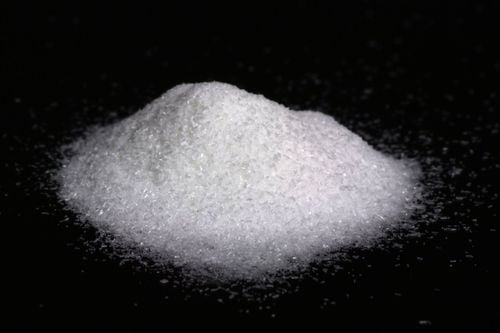This is an automatically translated article.
For the first 6 months after birth, babies need to be exclusively breastfed. After this period, breast milk no longer fully meets the nutritional needs of the child's development, the child needs to be supplemented with a sweet weaning diet. So how many months should parents give their baby MSG?
1. When should sweet baby food start?
Choosing the time to start weaning for your baby is very important, if the baby eats solids too early, it will reduce the amount of breast milk, increase the risk of diseases, reduce resistance, and have difficulty digesting food. On the other hand, if the child eats solid foods too late, the child will not receive the necessary amount of nutrients, leading to growth retardation, malnutrition, and difficulty learning to eat later.
According to recommendations, parents need to start giving their children complementary foods, also known as solid foods, at 6 months of age, this is the time when children need a lot more energy from foods such as flour, porridge. At this age, children have also basically adjusted their tongue manipulation better to move food in their mouths, children are able to chew and move their jaws up and down, their digestive system has also developed basically enough to digest certain foods.
However, if the baby is younger than 6 months, specifically a 5-month-old baby who is properly breastfed but still does not gain weight to the standard, or the mother has lost milk, it is still advisable to consider introducing solids earlier. at this age. Complementary foods for children need to have an appropriate consistency, sweet weaning menus for babies should gradually change from liquid to paste, then gradually thicken, from a small amount to a large amount so that the baby gradually gets used to the foods. new.
When starting to give baby solid foods, parents should practice giving them MSG and then gradually switch to salty powder depending on the preferences of each child, this is explained because MSG tastes very close to the smell. The taste of breast milk makes it easier for babies to get used to when they start eating solid foods.
Specifically, parents can start a sweet weaning menu for their baby with 1 scoop of powder, liquid, and 1 serving/day. After that, if the baby is not constipated, the powder can be mixed a little thicker until the baby can adapt well, can eat, then increase to 2 servings/day or feed according to the baby's needs. When eating sweet foods for babies, the mother can add more milk if the baby sucks milk poorly, there is no need to add vegetables to MSG because this is just a stage for the baby to get used to solid foods.

Giải đáp cho bé ăn bột ngọt bao lâu để các mẹ tham khảo
2. How long does it take for children to eat MSG?
After the child is familiar with the sweet baby food menu, the next issue that is very concerned by parents is to feed the baby MSG until a few months, how long to feed the baby MSG before switching to salty powder. ?
In fact, after 2 to 4 weeks of sweet baby food, if your baby's pepper is still good, you can switch to salty powder. Usually, when the baby is 5 months old, they eat MSG to get used to it, and from 6 months on, they start giving them salty powder.
Note that a cup of salted flour for children needs to ensure, full of 4 food groups: flour (rice, noodles, potatoes, corn), protein (meat, fish, eggs, milk, crab, shrimp, beans... ), vitamins and minerals (vegetables, fruits...), fats (edible oils, fats, sesame, peanuts...). Therefore, when making salty powder for children to eat weaning, parents can add vegetables, meat and even vitamins and minerals...

Cần bắt đầu cho trẻ ăn bổ sung hay còn gọi là ăn dặm lúc 6 tháng tuổi
3. Notes when giving solid foods to babies
When processing flour for children, it is necessary to limit seasoning of MSG (MSG) and salt, only take advantage of the available sweetness from food because eating salty is not good for the baby's kidneys. The utensils used to prepare food for children need to be clean, and the handlers need to wash their hands before and after feeding the children. Offer more food when the child is sick and after the illness.
If the baby eats full powder and breastfeeds immediately, it can make the baby vomit easily, due to too much food in the digestive tract or cause the baby to gain weight quickly, causing overweight and obesity. However, if the amount of powder is too small, the baby has not eaten enough, the extra breast feeding will not cause vomiting and indigestion. The nutrients in infant formula and breast milk are incompatible, so parents should not be too worried.
On the other hand, young children tend to be addicted to breastfeeding, if the child has reached the age of weaning but the mother still breastfeeds the baby continuously, even sucking right before the meal can make the baby lazy to eat, while only sucking. Breast milk alone will not be able to meet the nutritional needs of a growing baby at the age of 6 months and up. Babies who are addicted to breastfeeding often eat very little and "wear their mother" all day, if they don't practice feeding the baby until it's time to eat, then it will be easy for the baby to stop eating to wait for a feed, causing anorexia and loss of appetite. slow weight gain.
If the child's weight gain is not good or it is difficult to eat for a long time, parents should bring the child to a nutritionist to check whether the child has any health problems leading to anorexia or malabsorption.
The period of weaning should be very patient, should not force the child to eat, do not arbitrarily decide the amount of food for the child, but need to feed the child based on needs, most importantly, encourage and motivate the child. and interaction between mother and baby. Normally, children will eat solids according to the principle that the mother chooses the food, the child chooses the amount of food.
Pause the meal as soon as the child stops eating, then resume it. During meals, parents should have fun conversations, make eye contact with children to easily recognize their children's signals, for example, signals for food, not wanting to eat, not liking this type of food... Do not allow Children eat sweets and soft drinks before weaning meals.
The family atmosphere during meals also affects children a lot, when eating with the whole nursery, they can see other people eating and imitate them. If parents often let children hold their own food, although the child will surely spill it, this way makes the child more independent, interested and eat more. Do not let children distract from other things such as watching the phone, TV during meals.
In addition, parents also need to pay attention to supplementing necessary micronutrients for children such as: Selenium, Chromium, Vitamins B1 and B6, Ginger, acerola fruit extract (vitamin C),... Especially zinc biology to improve taste, help children eat well, reach the correct height and weight, and exceed standards, have a good immune system, strengthen resistance to reduce minor illnesses and have fewer digestive problems.
For more nutritional knowledge and child care for each age, parents should regularly visit the website vimec.com and make an appointment with the leading doctors, pediatric and nutrition experts of the National General Hospital. Vinmec when needing advice on children's health.













